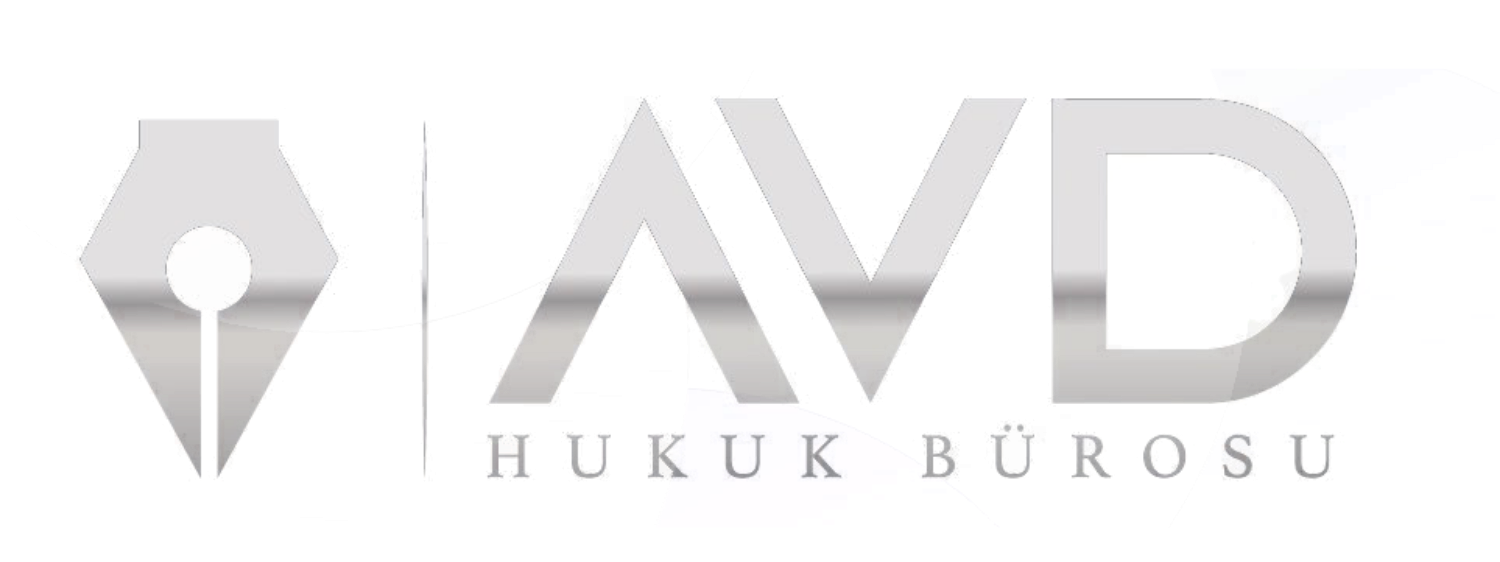AVD Law at Debt Enforcement Law
Debt and bankruptcy law regulates the relationships between creditors and debtors through laws and regulations. This legal field covers the legal procedures for a creditor, either a natural or legal person, to collect its debt in cases where the debt cannot be paid on time, and the ways in which the debtor can make a legitimate or illegitimate objection to the debt. Additionally, this field includes provisions that govern the debt of debt collection when the debtor is unable to pay or declares bankruptcy, and protects the rights of creditors.
Ultimately, debt and bankruptcy law protects the rights of creditors who cannot receive their debt on time, ensuring that the debt is paid from the assets of the debtor, both movable and immovable, and from the claims of third parties who are not involved. It also determines the measures to be taken and sanctions to be faced if the debtor fails to pay the debt on time. Moreover, it deals with the rights of creditors in cases of debt avoidance, denial of debt, etc. by the debtor, and how the collection process should be carried out, including how the process should proceed. The AVD Law Firm, which aims to protect the interests and rights of its clients to the optimal level by resolving the collection of debts from individuals and local and foreign corporate companies as soon as possible, offers analytical solutions in this regard. With the analytical solutions we offer, we at AVD Law consider it a working policy and principle to resolve the majority of the hardship of our valuable clients in collecting their debts and obtaining their debt.”
What is Debt and Bankruptcy Law?
To explain what debt and bankruptcy law is, first, let’s talk about what debt and bankruptcy law is. Debt and bankruptcy law is a legal system that protects and guarantees the rights of individuals or legal entities who cannot collect their debt on time from the debtor, either an individual or a legal entity. It enables the collection of the debt by the state through compulsory debt. If a private/corporate entity wants to collect its debt and cannot do so on its own, it can seek legal support in this regard from the AVD Law Firm.
Debt and bankruptcy law regulates the relationships between creditors and debtors through laws and regulations. This legal field covers the legal procedures for a creditor, either a natural or legal person, to collect its debt in cases where the debt cannot be paid on time, and the ways in which the debtor can make a legitimate or illegitimate objection to the debt. Additionally, this field includes provisions that govern the debt collection when the debtor is unable to pay or declares bankruptcy, and protects the rights of creditors.
Ultimately, debt and bankruptcy law protects the rights of creditors who cannot receive their debt on time, ensuring that the debt is paid from the assets of the debtor, both movable and immovable, and from the claims of third parties who are not involved. It also determines the measures to be taken and sanctions to be faced if the debtor fails to pay the debt on time. Moreover, it deals with the rights of creditors in cases of debt avoidance, denial of debt, etc. by the debtor, and how the collection process should be carried out, including how the process should proceed. The AVD Law Firm, which aims to protect the interests and rights of its clients to the optimal level by resolving the collection of debts from individuals and local and foreign corporate companies as soon as possible, offers analytical solutions in this regard. With the analytical solutions we offer, we at AVD Law consider it a working policy and principle to resolve the majority of the hardship of our valuable clients in collecting their debts and obtaining their debt.
What are the Types of Debt and Types of Seizure?
Debt and bankruptcy law is a branch of law that regulates the rules to be applied for the collection of the debt in resolving disputes between creditors and debtors/legal entities. In case the debtor fails to fulfill the debt, the public authority is used to collect the debt within the limits specified by the law upon the request of the creditor. The initiation of debt and bankruptcy proceedings, carrying out various operations for the purpose of collecting the debt as a result of the proceedings, interim seizure procedures, the cancellation of objections made against the debt, the lawsuit for ownership, declaration of bankruptcy, discharge of debt – negative determination lawsuit, recovery of money paid – confiscation lawsuit’s effects on proceedings, debt and restructuring practices, discharge of debt, declaration of concordat, mergers and acquisitions of companies facing bankruptcy or at risk of bankruptcy are among the topics of debt and bankruptcy law.
What are Debt and Bankruptcy Law Cases?
In order to utilize the debt and bankruptcy law for handling any kind of disputes between creditors and debtors and to create solutions to debt-bankruptcy problems, attorneys provide advice to their clients on the following matters: investigation of the assets of the debtor or company, conducting debt settlement negotiations between the client and the opposing party and recording the matter in the minutes, resolving disputes arising from credit agreements, creating an agreement ground between the creditor and debtor, monitoring all legal procedures of bankrupt companies from the perspective of their effects on the proceedings, declaring bankruptcy and concordat, etc. However, it is important to work with an debt and bankruptcy attorney who is knowledgeable, experienced, diligent, and has the necessary knowledge and experience in these matters in order to conduct the process smoothly and achieve the desired outcome.
In addition to debt departments and debt courts, which are in charge of collecting the debt from the debtor, some case items are also dealt with by civil law courts and commercial courts, which are outside the scope of the debt and bankruptcy law.
What are the Types of Debt Collection Proceedings?
There are various types of debt collection proceedings in the pursuit of collecting a debt. Debt collection proceedings is a legal process initiated by the creditor to recover a debt from the assets of the debtor when the debtor fails to pay the debt on time. The government enforces payment from the assets of the debtor and the creditor recovers the debt. The types of debt collection proceedings based on the source of the debt are:
- Maintenance collection proceedings.
- Rental collection proceedings.
- Mortgage collection proceedings.
- Pledge collection proceedings.
- Banking collection proceedings.
- Unlawful collection proceedings.
- Lawful collection proceedings.
The legal rights and obligations of the debtor vary depending on the types of debt collection proceedings. A debt collection proceeding is initiated when the payment order is delivered by the debt office to the debtor. The debtor may have the right to object to the debt within 7 days after the delivery of the payment order in some types of proceedings. In others, the debtor may only be able to object to the debt by filing a lawsuit in the debt court within 5 days. In other cases, the debt collection proceedings become final.
What are the Types of Seizure?
In the law of debt and bankruptcy, a seizure is placed on the assets and debts of the debtor and the escape of the assets of the debtor is prevented. Then, the collection is made through the sale and conversion to money. There are different types of seizures for the implementation of seizure on the assets of the debtor. They are:
- Final Seizure: A type of seizure that can be made after the debt becomes final and gives the authority to sell.
- Temporary Seizure: May be requested when the debt is temporarily lifted following the debt before it becomes final.
- Additional Seizure: May be requested if the seized assets do not cover all of the debt.
- Completion Seizure: When the debt director sets an insufficient value for the seized assets.
- Provisional Seizure: Applied when the debtor has the intention to escape the assets to avoid paying the debt.
Debt and Bankruptcy Law Consultancy
Collection of debt owed, through legal means and with the help of the state authority, is only possible for the amount owed by the debtor that was not paid on time. Therefore, it is important that the parties do not resort to illegal methods in regards to debt and claims. Thus, it is important to seek legal consultancy and assistance from professional and experienced lawyers in the field of debt and bankruptcy law. Otherwise, unwanted and difficult to remedy consequences may arise.
At AVD Law; we are on the side of our clients for legal assistance in case of a dispute about the collection of debts that have not been paid on time. We support initiation, follow-up and resolution of debt and bankruptcy law cases with our professional perspective.
You can contact our lawyers to get information about collection of your debt in accordance with the laws and regulations related to debt and bankruptcy law, and to learn about the details of your legal rights.

AVD Hukuk Müvekkilleriyle Nasıl Çalışır

Davayı Tartış
Davayla ilgili uzman avukatlarımız müvekkillerimizle ilgili dava hakkında bir toplantı düzenler ve dava hakkında detaylı bilgi alır.

Durumları Değerlendir
Mevcut koşulların ve dava sürecinin müvekkil lehine ve aleyhine ne tür dinamikler barındırdığının analizi yapılır.

Dava Dosyasını Hazırla
İlgili Dava içeriğine ve koşullarına göre dava dosyası hazırlanır, müvekkille son kontroller yapılarak ilgili mahkemeye iletilir.

Daha Fazla Bilgi Topla
Dava süreci takip edilerek gelişmeler müvekkil ile paylaşılır. Gerektiği durumlarda mahkemeden gelen veriler doğrultusunda müvekkil ile koordinasyon halinde yeni bilgiler ve belgeler edinilir.


